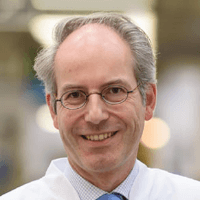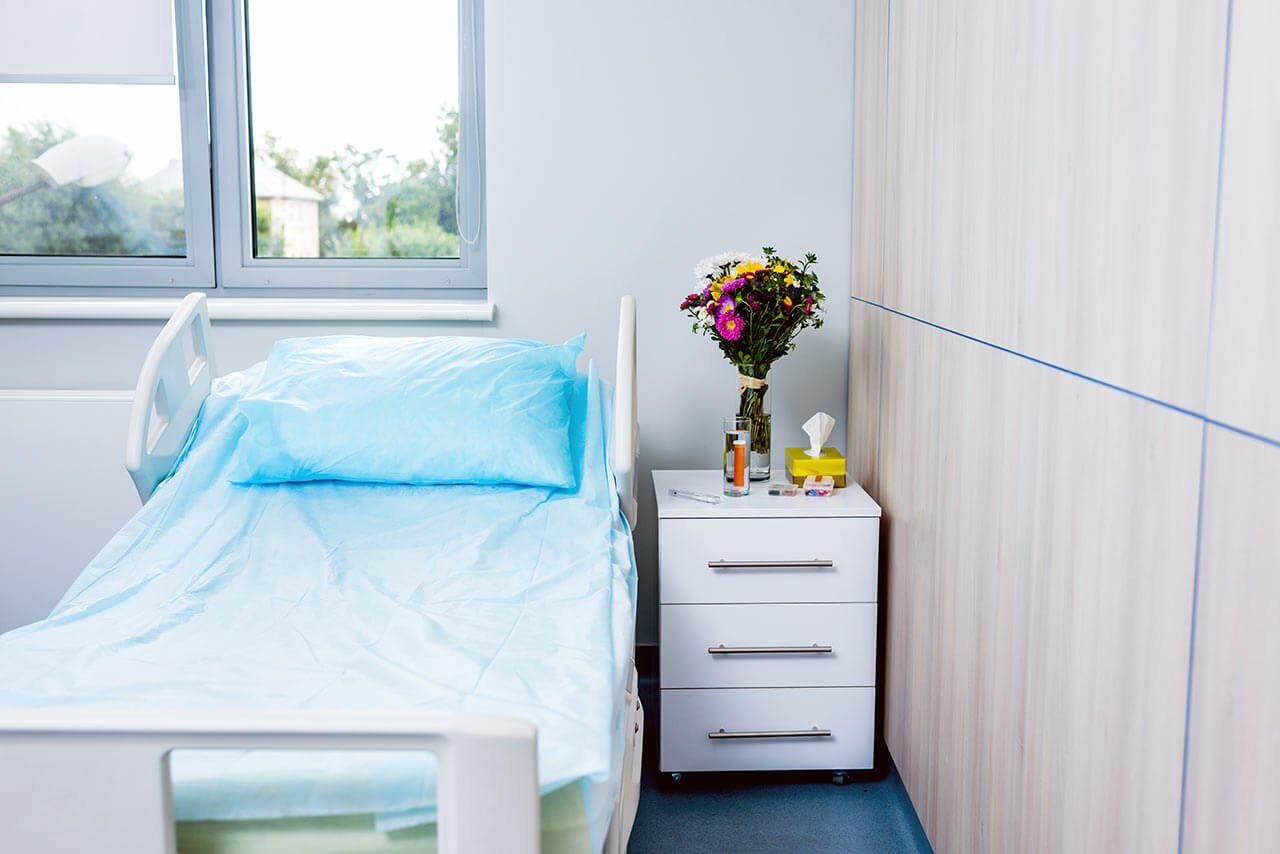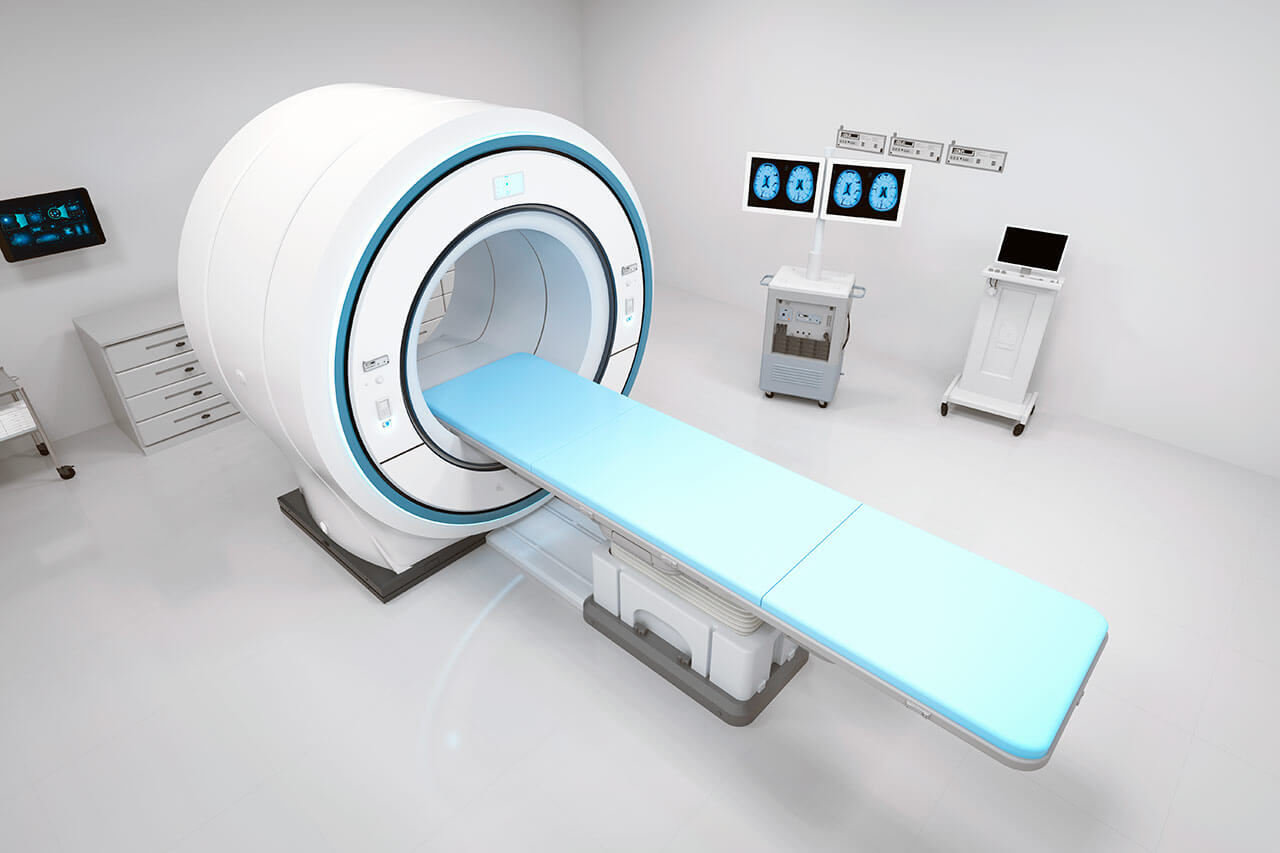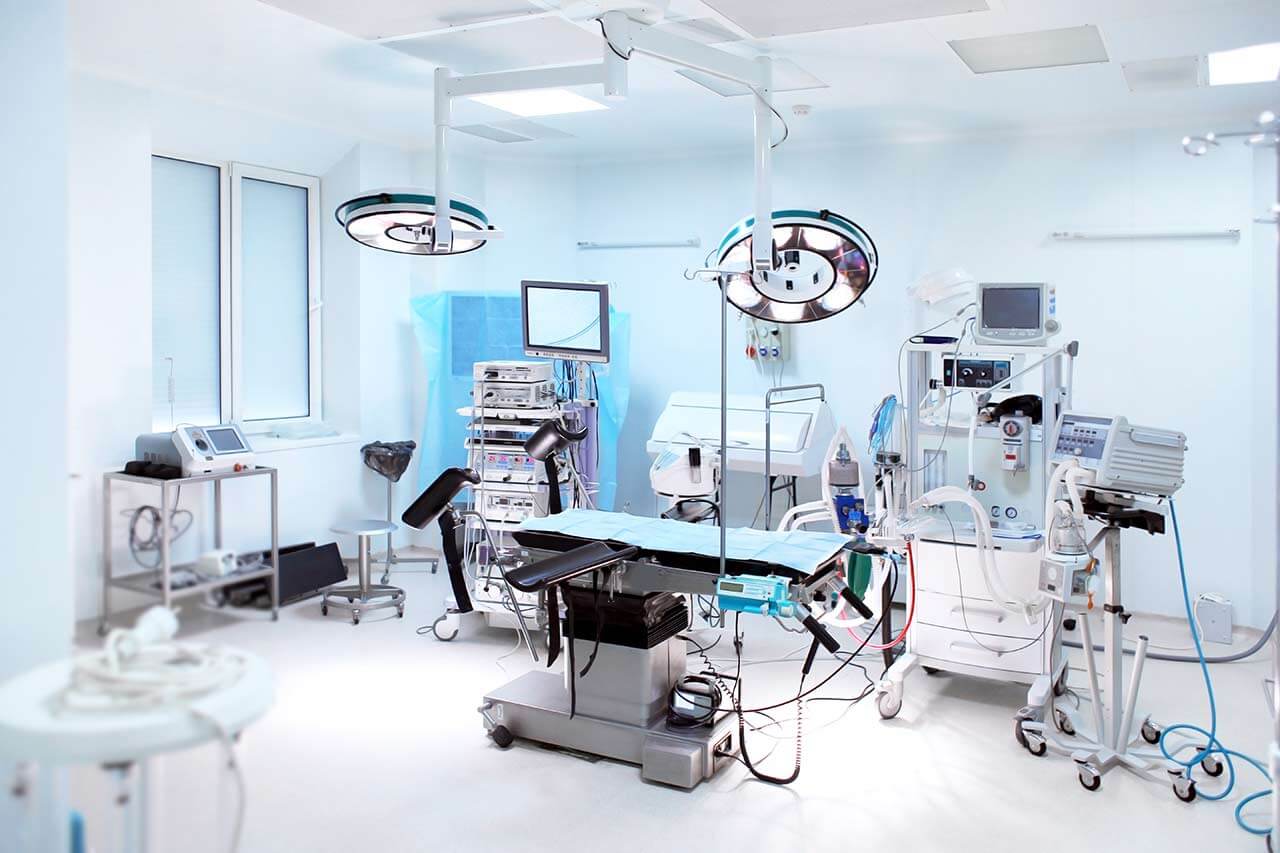
The program includes:
- Initial presentation in the clinic
- clinical history taking
- physical examination
- cardiological examination
- laboratory tests:
- complete blood count
- general urine analysis
- biochemical analysis of blood
- TSH-basal, fT3, fT4
- indicators of inflammation
- indicators blood coagulation
- Cardiological examination
- Measurement of arterial blood pressure, EKG
- Cardiac monitoring (24h)
- ECHO
- Transesophageal echocardiography (TEE)
- nursing services
- full hospital accommodation
- explanation of individual treatment plan
Required documents
- Medical records
- Echocardiography (if available)
Service
You may also book:
 BookingHealth Price from:
BookingHealth Price from:
About the department
The Department of Pediatric Cardiology at the University Hospital Giessen UKGM specializes in the diagnostics and treatment of all types of congenital and acquired cardiovascular diseases in newborns, children and adolescents. In addition, the department is a supra-regional Adult Congenital Heart Disease Center (medical care is provided on an inpatient and outpatient basis). The department pays special attention to the treatment of congenital heart defects using open surgery or interventional procedures, medical and electrophysiological treatment of arrhythmias, and severe types of heart failure. The department is one of the leading centers in Europe specializing in heart transplantation in children. The department is headed by Prof. Dr. med. Christian Jux.
The department has two operating rooms, in which doctors annually perform more than 500 operations to treat congenital heart defects in children of all age groups. The surgical treatment is carried out in close collaboration with pediatric cardiac surgeons. The spectrum is also complemented by interventional catheter procedures and hybrid interventions. In addition, the department is equipped with state-of-the-art diagnostic equipment, for example, a 3 Tesla MRI (more than 800 examinations annually), cardiac catheterization laboratory (more than 600 examinations and therapeutic procedures), and 3D rotational angiography device.
The department has many specialized outpatient clinics, in particular, outpatient clinics for pulmonary hypertension, cardiac arrhythmias, conditions after heart transplantation and Fontan procedure, etc. The department receives about 8,000 young patients on an outpatient basis annually.
The key surgical intervention in the department is heart transplantation. In total, this operation has been performed 75 times in Giesse since 1988. The frequency of such interventions is about 8-10 cases per year. In the overwhelming majority of cases (56 out of 75), the patients were children who were younger than one year old at the time of the operation. Thus, the University Hospital Giessen UKGM holds a leading position in Europe in the field of heart transplantation in infants.
The department’s range of medical services includes:
- Invasive diagnostic and treatment techniques
- Diagnostic services
- Left and right heart catheter examinations (access through the thigh, axillary region, shoulder, neck, infraclavicular region)
- Electrophysiological examinations
- Intravascular ultrasound examinations
- Myocardial biopsy
- Lung biopsy
- Therapeutic services
- Atrioseptostomy (Rashkind procedure)
- Atrial septal dilatation (including pulmonary hypertension therapy)
- Angioplasty
- Drug and mechanical thrombectomy
- Electrical and pharmacological cardioversion
- Balloon dilatation of the heart valves
- Pulmonary valve (including critical pulmonary valve stenosis)
- Aortic valve (including critical stenosis of the aortic valve)
- Mitral valve
- Tricuspid valve
- Balloon dilatation (stent implantation) in vascular stenosis
- Congenital and acquired pulmonary stenosis
- Patent ductus arteriosus
- Aortic isthmus stenosis
- Coronary artery stenosis (including intracoronary thrombolysis)
- Stenosis of the pelvic arteries, lower limbs, kidneys and supra-aortic vessels
- Occlusal techniques using spirals and probes
- Patent ductus arteriosus
- Atrial and interventricular septal defects
- Open oval window
- Coronary arterial fistulas
- Peripheral and pulmonary arteriovenous fistulas
- Treatment of arrhythmias
- High-frequency ablation
- Pacemaker implantation
- Implantation of automatic defibrillators
- Thrombus fragmentation
- BROVIAC catheters (for example, in the treatment of primary pulmonary hypertension)
- Diagnostic services
- Non-invasive diagnostic and treatment techniques
- Diagnostic services
- ECG, including Holter ECG, stress ECG
- 24-hour blood pressure monitoring
- Cardiac ultrasound/echocardiography with color Doppler ultrasonography
- Transesophageal echocardiography
- Echocardiography, including stress echocardiography
- Vascular ultrasound (dopplerography, color duplex sonography)
- X-ray examination of the lungs and heart
- Pulse oximetry
- Orthostatic test
- Monitoring of work of pacemakers, defibrillators
- Pulmonary function tests
- Computed tomography (CT) and magnetic resonance imaging (MRI)
- Laboratory tests
- Therapeutic services
- Congenital and acquired heart defects
- Heart failure
- Myocarditis and endocarditis
- Cardiomyopathies
- Kawasaki syndrome and other vascular diseases
- Arterial hypertension
- Pulmonary hypertension
- Arrhythmias
- Syncope, orthostatic/vasovagal dysregulation
- Diagnostic services
- Other medical services
Curriculum vitae
Since April 2017, Prof. Dr. med. Christian Jux has been the Head of the Department of Pediatric Cardiology at the University Hospital Giessen UKGM. He also holds the position of W3 Professor in Pediatric and Adolescent Medicine with a focus on Pediatric Cardiology at the Justus Liebig University Giessen. Previously, he headed the Department of Pediatric Cardiology at the University Hospital Muenster, including teaching activities in the Department of Cardiology.
The doctor studied Human Medicine, Philosophy and Medical Ethics at the University of Göttingen, at the Faculty of Medicine at the King's College London and at the Faculty of Medicine at the University of Toronto (1987 - 1994). In 1996, he received his doctorate at the Heidelberg University as part of scholarship from the German Research Foundation. The habilitation followed in 2007. Prior to the appointment as Head of the Department of Pediatric Cardiology at the University Hospital Giessen UKGM, Prof. Jux worked in the hospitals of Heidelberg, Hanover, Göttingen and Bad Oeynhausen. Since 2008 till 2013, he worked as Senior Physician and Head of the Cardiac Catheterization Laboratory at the Pediatric Heart Center in Giessen. Then he was appointed as Head of the Department of Pediatric Cardiology at the University Hospital Muenster.
The main fields of the doctor's clinical activities include catheter treatment of heart pathologies in newborns, children and adults with congenital heart defects, as well as intensive care in children.
The research interests of Prof. Jux are focused on the development and clinical application of new cardiac catheterization techniques. He took part in the development of new implants. He also studies the functioning of cardiovascular implants in a growing body. Prof. Jux also participates in fundamental research. In the next few months, it is planned to establish the Research Laboratory for Pediatric Cardiology in Giessen, which will conduct experimental trials in growth and metabolic processes during prenatal and postnatal periods of development.
Photo of the doctor: (c) UKGM - Universitätsklinikum Gießen und Marburg GmbH
About hospital
The University Hospital Giessen UKGM positions itself as an ultramodern medical facility with outstanding quality of medical care. The hospital presents almost all areas of medicine, ranging from ophthalmology to traumatology and dentistry. The priorities of the hospital’s activities include surgery, neurosurgery, oncology, nephrology with kidney transplantation and pediatric medicine.
The hospital is the third largest in Germany. Every year, more than 436,000 patients are treated in two locations of the hospital (Giessen and Marburg): 342,000 outpatients and 94,000 inpatients. The medical facility is the first privatized university hospital in the country.
The hospital staff is engaged not only in clinical practice, but also in research activities on the basis of the Faculty of Medicine at Justus Liebig University Giessen and Philipps University of Marburg, which contributes to a significant contribution to the development of modern medicine. During the many years of productive work on the development of new diagnostic and treatment methods, the hospital’s doctors managed to make many significant discoveries.
The hospital enjoys an excellent reputation in Germany and far beyond its borders. It managed to gain such credibility thanks to the high competence of doctors, advanced equipment, high-quality medical service and care.
Photo: (c) depositphotos
Accommodation in hospital
Patients rooms
The patients of the University Hospital Giessen UKGM live in comfortable rooms made in a modern design and light colors. Each room has an ensuite bathroom with shower and toilet. The standard room furnishing includes an automatically adjustable bed, a bedside table, a wardrobe, a table and chairs for receiving visitors, a TV, a telephone.
Meals and Menus
The patients of the hospital are offered balanced, healthy three meals a day: buffet breakfast, lunch and dinner. The private kitchen, certified according to DIN EN ISO 9001:2000, is responsible for providing patients with food and drinks.
If for some reason you do not eat all foods, you will be offered an individual menu. The hospital also has a cafeteria with a large assortment of hot and cold drinks, snacks and desserts.
Further details
Standard rooms include:
Television
All patient rooms are equipped with TV sets. If you have some questions, please contact medical personnel.
Religion
Religious services can be provided upon request.
Accompanying person
During an inpatient program, an accompanying person can stay with you in a patient room or in a hotel of your choice.
Hotel
During the outpatient program, you can stay at the hotel of your choice. Our managers will help you to choose the most suitable option.




